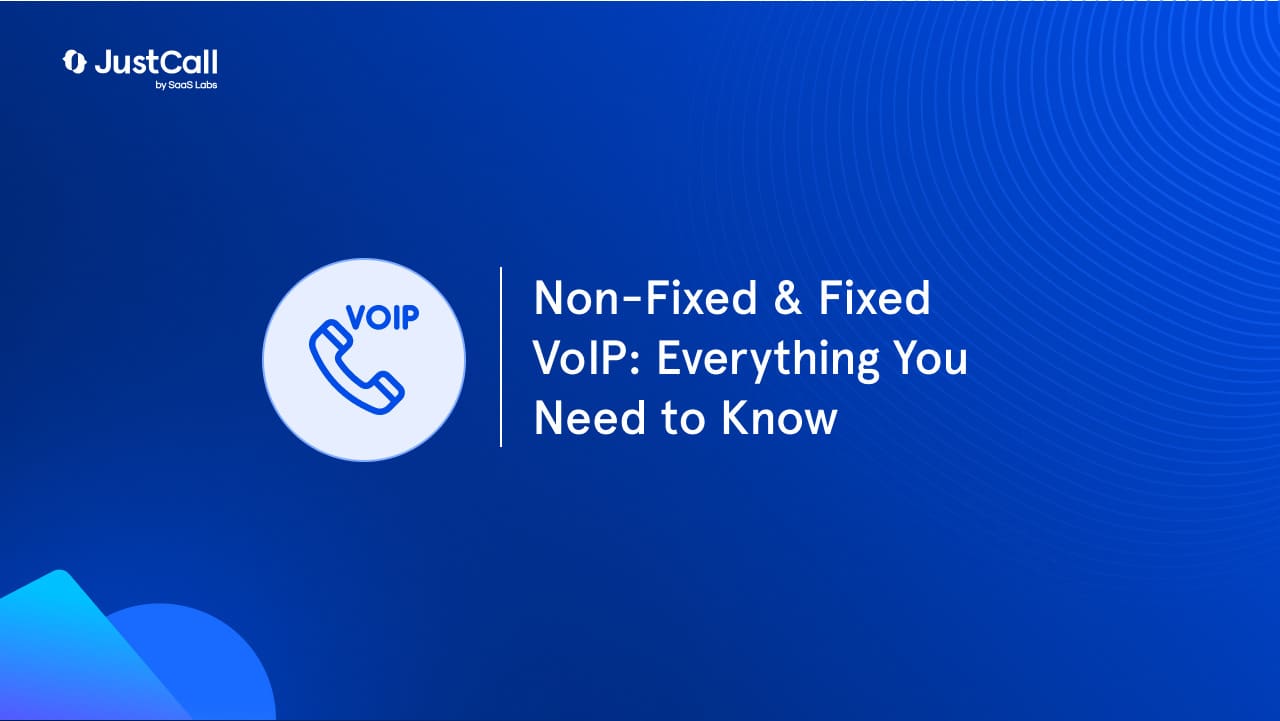Introduction
As you scale your business up, you need to think about the communications technologies that you deploy for customer-centric operations.
Cost-effectiveness and efficiency are the most important considerations you can prioritize for this purpose – and this makes VoIP (Voice over Internet Protocol) the most suitable solution.
Understanding VoIP
VoIP is a simple concept that uses the internet to place a call by breaking it up into “packages” of data transmitted over the internet and delivered to the other side.
There is no requirement for a dedicated phone line to use VoIP. It is cost-effective and relies only on the quality of the internet to function well.
Fixed and non-fixed VoIPs impact how customers receive and view your call data, which makes it necessary to understand what they are and how they work.
Join 6,000+ Businesses Who Trust JustCall Phone System
What Does Fixed VoIP Mean?
Much like a landline-based phone number has a physical address attached to it, a fixed VoIP phone number also has a physical address.
This doesn’t mean that it uses phone lines for placing calls, though – it only means that there is a person who owns the fixed VoIP through an account and has a physical address.
For this reason, fixed VoIP numbers are considered more reliable and trustworthy because fraudsters are less likely to use a fixed VoIP for a scam. It is hard to mask or fake your identity with a fixed VoIP number, which assures your consumers that a call from your business is a safe call.
What is a Non-Fixed VoIP?
Non-fixed VoIP numbers are virtual phone numbers that are not associated with a physical address or any geographical location. They mostly utilize the cloud network to help a business make, receive and manage calls from anywhere in the world.
Non-fixed VoIPs are an excellent choice for businesses with remote or hybrid work culture, as it eliminates the need for a physical address to be attached to a phone number.
These virtual numbers can be customized to deliver any information through the called ID, helping your business establish a local presence even from overseas.
Difference Between Fixed VoIP and Non Fixed VoIP
Tabulated below are the major difference between a fixed VoIP and a non-fixed VoIP:
| Fixed VoIP | Non Fixed VoIP |
| This technology is not cost-effective for international calls. | Non-fixed VoIP is ideal for cross-border calling. |
| The caller ID information is more private and secure. | Since this information can be customized, it can be hacked and isn’t necessarily safe. |
| Fixed VoIP is suitable when your office operations are plateauing. | Non-fixed VoIP is ideal for businesses growing rapidly and consistently. |
| Fixed VoIP numbers can be traced to their physical address. | These numbers cannot be traced to any physical location. |
The Verdict
It is true that non-fixed VoIP numbers give your business better flexibility in terms of international calling and hybrid work environments. It is also true that fixed VoIPs are considered safer and more reliable.
The advancements in technology have brought about significant improvement to the security of non-fixed VoIPs as well, which help to mitigate some of the risks associated with them.
JustCall can provide you with a complete VoIP setup – fixed or non-fixed – that is configured to your business needs to the T. For more information on how JustCall can help, visit the website.












